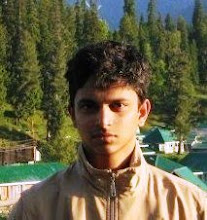Nigel Britto
It was 1967 when Alexander Mascarenhas of Loutolim, then just 22, left home to pursue his studies abroad. Not knowing whether or not he would ever return home to then-golden Goa, he immersed himself into music. The affable cellist, who later fell in love, got married and has two children in Germany, was not to see his beloved Loutolim for more than four decades.
Now, with son Oliver firmly in tow, Mascarenhas, on his first visit home in 43 years, will present a concert at Kala Academy's Black Box on Friday evening. The father-son duo will play Beethoven, Ticciati and Rossini among others, for their first recital in Goa. The humble cello forms the bass of the Mascarenhas family's love for music. Mascarenhas' German wife, Veronika, is also a cellist, and his father, Espirito Santo, who taught music at Goa's erstwhile Academia de Musica, played with Mehli Mehta, father of the legendary Zubin Mehta, in the Bombay Chamber Orchestra, and often used the legend's name to inspire his son. "My dad used to tell me, 'his son is a great man, if you practice, you'll be like him'," Mascarenhas wistfully recalls.
How did Goa happen after so many years? "My son was instrumental in bringing me here." says Mascarenhas, who taught music in the German city of Grevenbroich (Jugendmusicschule des Kreises Neuss) for 38 years. "My wife's permission, too, is very important," he says, which he managed to obtain. Such was his passion for 'building a class of musicians' in Germany, that he never found time to visit home throughout his teaching career. Today, his pupils play in orchestras across Germany. Now retired yet vivacious and sprightly, he still teaches in Germany, and is looking forward to 'giving back to society', here in Goa. On a more personal note, he's also looking forward to meeting his brother on Friday after four decades, six days after he met his sister-in-law after a similar time gap.
One of his first students was Oliver, who's justifiably excited at the prospect of playing with his dad for the first time on a public stage. The 36-year-old first came to Goa in 2005, wanting to 'rediscover his past'. The wildly-talented musician, at 22, won an audition for principal cellist of the NDR Radiophilharmonie Hannover, a German orchestra, and has held this place ever since. He has also played in an orchestra in Granada, Spain, and has won several international competitions and played around the world including Argentina, China, Japan and most of Europe. Throughout his travels he carried along his trusted aide-the 250-year-old cello crafted by Joseph Gaffino. The dynamic musician, who likes to explore the cultures of different countries, doesn't limit his work to classical, often expanding to jazz, Austrian folk music and even what he calls 'cello hip-hop'. Electronic music also impresses him. Oliver's sister and Mascarenhas Sr's other child is a German actress and surprisingly went against the family tradition of playing the cello, instead preferring the flute.
Friday's concert will be the culmination of the father-son duo's short trip to Goa. After having given two private recitals prior to Friday's public concert, Mascarenhas Sr is quite clear it's the last. "We'll spend the next week of our trip vacationing," he says. The concert, put together by the Goa Guitar Guild, will also include performances by Goan violinist Ashley Rego and pianist Ingrid-Anne Nazareth. It's important that there's interaction with Goan musicians, Mascarenhas says, adding that he might return sometime later this year to share his skills with young Goan talent.
Mascarenhas may have forgotten Goa all these years, but Goa evidently hasn't forgotten him; he narrates an incident last week of a former classmate at Don Bosco's, now a Salesian priest, recognizing him immediately after more than 50 years. Oliver, too, is looking forward to visiting his ancestral Loutolim this week. Though he has never lived in Goa as a resident, he holds more than average interest for the Konkani language and Goa. While the rest of the state shivered through much of December, the Mascarenhases praised the 'pleasant' weather. After all, they were glad to be away from the plummeting mercury back in Europe, realizing that temperatures are just like everything else; positive always better than negative.
This article was first published in The Times of India, Goa, on its edition dated January 7, 2011.

